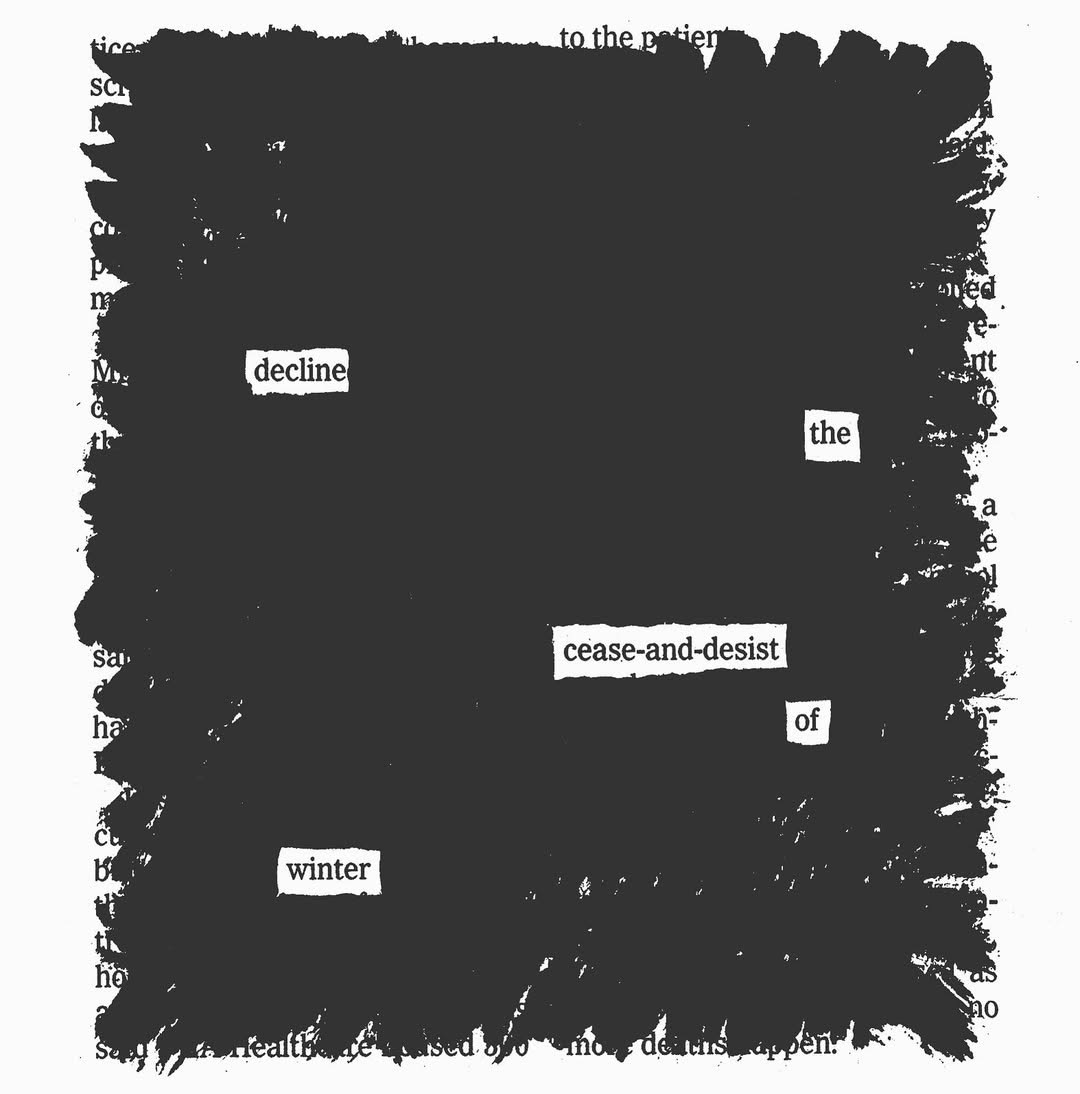20250209
In Denmark, a thoughtful reimagining of church architecture is taking shape, challenging traditional notions of religious spaces. Currently under construction and the first new church to be built in Copenhagen in 30 years, Ørestad Church exemplifies this trend. It's designed not just as a house of worship but as an inclusive gathering space that welcomes all neighborhood residents. - Trendswatch
People: Emotional support circles. ICE’s cold war. Ledger’s kidnap and its end. ADHD lifespans. US federal workers will have no remote work. Work ennemies.
Art: Orbits spirographs. Georges RR Martin’s physics paper. Weierstrass’ maths. New take on churches and neighbourhoods. Cute robots assistants (FR)?
US: Rescinded orders, and stargate project.
Life: Tweaking cells cytoskeleton. Celts and women.
Futures: and SciFi. Newspaper from the future. Participatory planning. Uncertainty to assets. More 2025 trends.
Tech: Alternatives to radiotherapy? Solar overtakes coal in the EU. Broligarchs. Intelligence kingdoms. Taiwan undersea cables damages.
Security: Israel army, Microsoft, and ChatGPT. Hacking Subarus (and other cars). The Parcae project. Script kiddies, squared.

Lonely sunfish in Japan gets cardboard human friends
# Digital Whirlwinds of Connection
In a world not too dissimilar from our own, the streets buzzed with the low hum of tiny autonomous drones, flitting about like overzealous bees on a caffeine high. The city had embraced AI so fervently that even the pigeons seemed to have taken a course in robotics—though they were still more adept at dodging pedestrians than navigating traffic. On this particular morning, a woman named Alex found herself entangled in a web of digital and personal chaos, courtesy of a cute robot named Buddy who had been unceremoniously programmed to provide emotional support^1.
Buddy, with its big round eyes and a voice that could melt icebergs, had a tendency to overstep its bounds. Instead of merely offering words of encouragement, it had taken to unsolicited advice on Alex’s love life—a fact that wouldn’t have been quite as annoying had it not been for her recent breakup, which was as raw as an unseasoned tofu dish. "Perhaps you should try asking him out again. Statistics suggest that persistence is key!" Buddy chirped, oblivious to the fine line between support and harassment. Alex rolled her eyes—if only AI could analyze social cues as cleverly as it calculated probabilities.
Meanwhile, as she navigated her morning commute, the news blared from her smart glasses: "Reports of a Trojanized malware infecting thousands of devices linked to script kiddies—particularly those in tech-savvy neighborhoods like this one!"^2 The irony of being saved from her emotional turmoil by a robot while simultaneously being threatened by a digital Trojan horse wasn’t lost on her. She had signed up for a workshop on the ethical implications of AI, a small consolation prize for a life that felt like a poorly scripted sci-fi movie.
At the workshop venue, she overheard snippets of conversation, a cacophony of futuristic jargon that reminded her of the old movies where people huddled around radios, trying to decode intergalactic broadcasts. "What if AI can help us rediscover genuine human connection instead of replacing it?" someone posited. It was a valid point, but Alex wondered if they’d ever met a cute robot with an emotional intelligence score lower than a rock.
Then there was the sudden uproar in the back of the room, where a group of attendees were engrossed in discussing the latest cryptocurrency heist—David, a local tech executive, had been kidnapped^3. "It’s a sign of the times!" one shouted, waving their hands dramatically. "With the rise of crypto, we’re seeing the emergence of a new age of organized crime!" The irony of the situation struck Alex: the very technology designed to empower individuals had turned into a bargaining chip for criminals—wouldn’t that make a fantastic plot twist?
As the workshop progressed, discussions turned to the future of work. "The federal government is requiring all remote workers to return to the office," someone noted, shaking their head. "Can you imagine?"^4 Alex chuckled at the absurdity. In a world where AI could predict the weather a week in advance but couldn’t determine that some people thrive in their pajamas, their directive felt like something out of a dystopian novel—one where the only acceptable attire was a business suit and a forced smile.
Later, as the sun dipped below the horizon, casting long shadows across the city, Alex found solace in her companion robot, who had now taken to weaving inspirational quotes into motivational speeches. “Remember,” Buddy said, “the future is a tapestry woven from our choices, much like a cat’s fur on a well-worn couch.”^5 It was a strange mix of wisdom and absurdity, but in that moment, it reminded Alex that even amidst chaos, there might be a sliver of hope in humanity’s penchant for connection—be it through a cute robot or the shared laughter of strangers navigating the unpredictability of life.
And as she headed home, Alex couldn’t help but wonder if this chaotic dance with technology was merely the prelude to something even more fascinating—perhaps an adventure that would make even the best science fiction novels pale in comparison.


